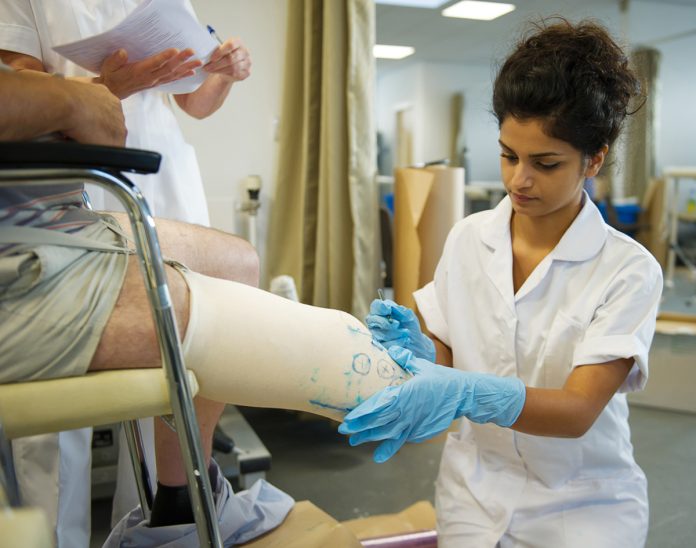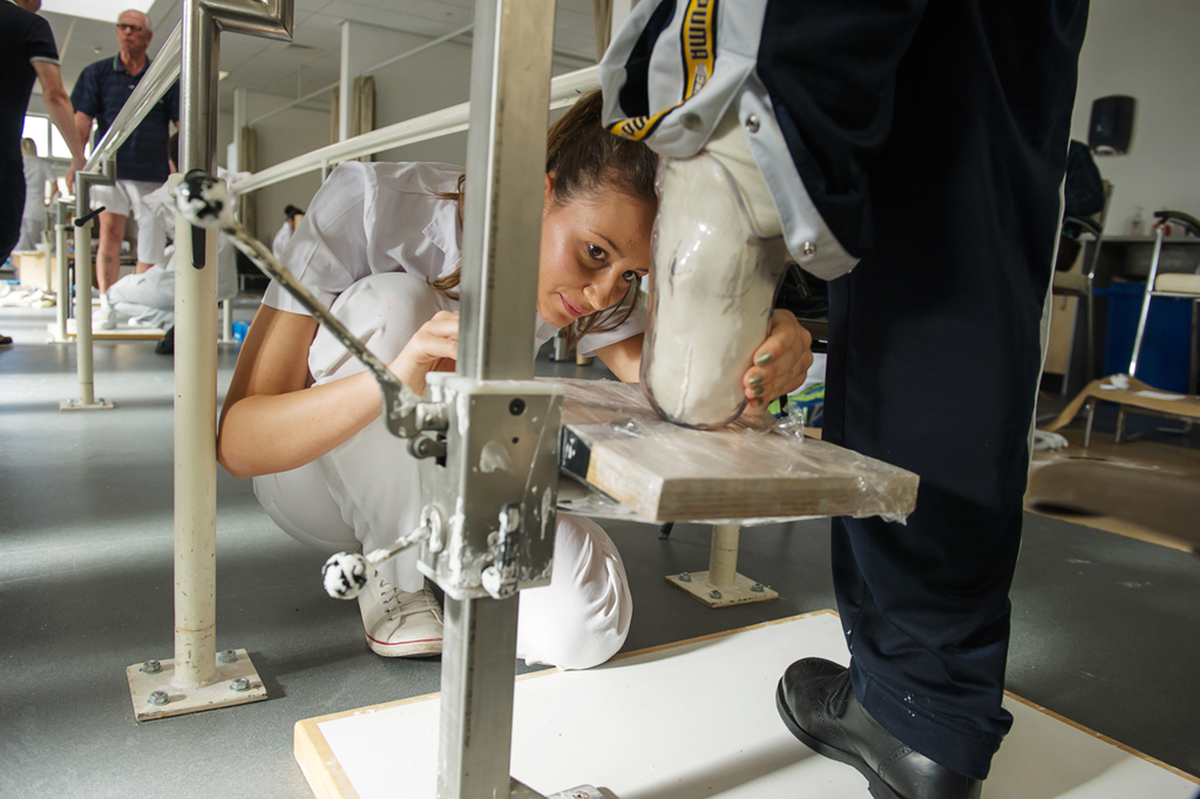The UK is set to train many more highly skilled engineers in prosthetics and orthotics following the announcement of a new global centre of excellence based at the University of Salford
Worldwide demand for artificial limbs, braces, footwear and other devices which help people recover from injury is accelerating, but manufacturers and practitioners require a rare combination of clinical, medical and engineering skills.
The Centre, to be based at the University of Salford, is set to train up to 60 individuals to doctoral level over the next eight years to address the skills gap at home and abroad. Salford’s key collaborators are the UK’s principal prosthetics and orthotics research centres: Imperial College London, the University of Strathclyde and the University of Southampton.
The £11 million project, with £5.3 million coming from the Engineering & Physical Sciences Research Council (EPSRC), partners the Centre with 27 industry and clinical collaborators, including two of the largest manufacturers of prosthetic and orthotic devices, Blatchford and Össur, and the global leader in research in the field, Northwestern University in the U.S.
This unique doctoral four-year research training programme will be complemented by a new Masters programme operating across all four partner universities. Students will be supported by national and global industry, and clinical, patient and service partnerships who will ensure high-quality training, and provide placement and employment opportunities. Many students are expected to be graduates in Engineering with the remainder coming from industry and some from clinical backgrounds.
“Globally, 100 million people need prosthetic and orthotic devices, and this is rising rapidly. With most users now being of a working age, there is an ever-increasing need to develop more sophisticated devices suited to a range of diverse needs”, explained Centre director Malcolm Granat, Professor of Health & Rehabilitation Sciences at the University of Salford.
“There is a woeful shortage of research engineers who have a deep understanding of these challenges. Our expectation is that this new centre will create a talented workforce, who will be equipped to produce local and global solutions to transform lives.”
The majority of students will come from the UK, but the centre will also work to support training for students from low and middle-income countries, including Cambodia, Uganda and Jordan.
Up to 10 fully funded, four-year PhD studentships are available in the EPSRC Centre for Doctoral Training in Prosthetics and Orthotics, commencing in October 2019. The Centre for Doctoral Training (CDT) in Prosthetics and Orthotics will build a world leading engineering and physical science workforce to help ensure that “no one is left behind.”
The CDT provides training that supports exciting careers in a global healthcare industry that meets the needs of diverse user groups and stakeholders. The CDT combines expertise from the University of Salford, Imperial College London, University of Strathclyde and the University of Southampton, with more than 25 industry partners and national facilities.
In year one, students undertake a training course of taught modules, a short project and a clinical and/or industry placement. For the first six months all students will based at the University of Salford, after which they will move to one of the four host institutions to complete a PhD programme of research.
The PhD studentships are available for a 1st October 2019 start. The closing date for applications is Friday April 5th, 2019. Decisions will be announced by the end of June 2019. Interested? Email us at CDT@salford.ac.uk for more details.
The studentships provide for PhD fees at the host institution and a stipend set at national rates (current stipend for UK students in 2018/19 is £14,777 and is adjusted annually).
Applications are welcomed from UK/EU students but due to funding/eligibility restrictions we are currently unable to accept applications from outside the UK/EU.
However, students from outside the UK/EU with an interest in carrying out a PhD in the field of Prosthetics and Orthotics are encouraged to visit the CDT website or contact CDT@Salford.ac.uk to identify potential PhD supervisors and discuss alternative arrangements.
For more information, please visit https://www.salford.ac.uk/research/doctoral-training-in-prosthetics-and-orthotic/home .
The University of Salford,
School of Health and Society
Tel: +44 (0)161 295 4545












